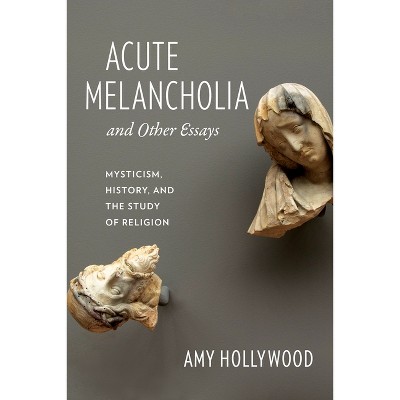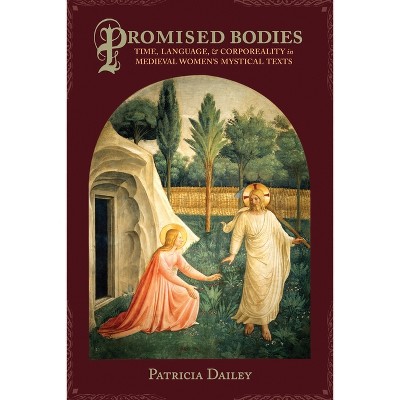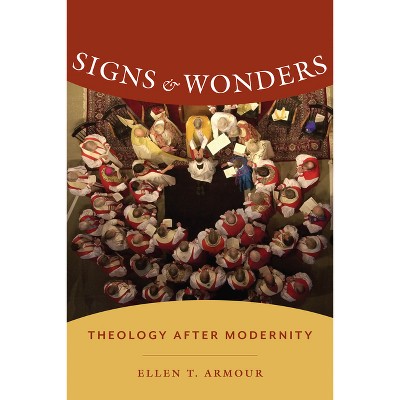Sponsored

Naming the Witch - (Gender, Theory, and Religion) by Kimberly Stratton (Hardcover)
$75.99
In Stock
Eligible for registries and wish lists
Sponsored
About this item
Highlights
- Kimberly B. Stratton investigates the cultural and ideological motivations behind early imaginings of the magician, the sorceress, and the witch in the ancient world.
- About the Author: Kimberly B. Stratton is an associate professor in the College of Humanities at Carleton University.
- 312 Pages
- Body + Mind + Spirit, Magick Studies
- Series Name: Gender, Theory, and Religion
Description
About the Book
Kimberly B. Stratton presents an innovative approach to understanding ancient depictions and accusations of magic as forms of discourse, examining their role in struggles to define legitimate power and authority. She traces "magic discourse" from Classical Greece to the Babylonian Talmud, illuminating powerful stereotypes of sorcery and witches.Book Synopsis
Kimberly B. Stratton investigates the cultural and ideological motivations behind early imaginings of the magician, the sorceress, and the witch in the ancient world. Accusations of magic could carry the death penalty or, at the very least, marginalize the person or group they targeted. But Stratton moves beyond the popular view of these accusations as mere slander. In her view, representations and accusations of sorcery mirror the complex struggle of ancient societies to define authority, legitimacy, and Otherness.
Stratton argues that the concept "magic" first emerged as a discourse in ancient Athens where it operated part and parcel of the struggle to define Greek identity in opposition to the uncivilized "barbarian" following the Persian Wars. The idea of magic then spread throughout the Hellenized world and Rome, reflecting and adapting to political forces, values, and social concerns in each society. Stratton considers the portrayal of witches and magicians in the literature of four related periods and cultures: classical Athens, early imperial Rome, pre-Constantine Christianity, and rabbinic Judaism. She compares patterns in their representations of magic and analyzes the relationship between these stereotypes and the social factors that shaped them. Stratton's comparative approach illuminates the degree to which magic was (and still is) a cultural construct that depended upon and reflected particular social contexts. Unlike most previous studies of magic, which treated the classical world separately from antique Judaism, Naming the Witch highlights the degree to which these ancient cultures shared ideas about power and legitimate authority, even while constructing and deploying those ideas in different ways. The book also interrogates the common association of women with magic, denaturalizing the gendered stereotype in the process. Drawing on Michel Foucault's notion of discourse as well as the work of other contemporary theorists, such as Homi K. Bhabha and Bruce Lincoln, Stratton's bewitching study presents a more nuanced, ideologically sensitive approach to understanding the witch in Western history.Review Quotes
Naming the Witch is a well argued, well constructed book that can be highly recommended.--Patrick Maille "Bryn Mawr Classical Review"
A scrupulous and highly innovative study of the phenomenon of "magic" in the ancient world... A significant contribution to the discussion... Recommendable to all readers.--Thomas J. Kraus "Review of Biblical Literature"
Stratton's analysis thus sheds light not only upon the ancient world but also upon a present in which the discourse of magic retains its currency in popular culture and religious rhetoric. . . . A most enlightening volume which will no doubt stimulate scholarly and popular conversation for many years to come.-- "Studies in Religion/Sciences Religieuses"
This is one of the most stimulating and intelligent of many studies of ancient magic in recent scholarship...--Ian H. Henderson "Toronto Journal of Theology"
Wide-ranging and engaging. . . . This book furthers our understanding of the discourse of magic in antiquity.-- "Journal for the Study of Judaism in the Persian, Hellenistic, and Roman Period"
About the Author
Kimberly B. Stratton is an associate professor in the College of Humanities at Carleton University. She is coeditor of Daughters of Hecate: Women and Magic in Antiquity (2014) and Crossing Boundaries in Ancient Judaism and Early Christianity: Ambiguities, Complexities, and Half-Forgotten Adversaries (2016).Dimensions (Overall): 9.27 Inches (H) x 6.34 Inches (W) x 1.0 Inches (D)
Weight: 1.23 Pounds
Suggested Age: 22 Years and Up
Number of Pages: 312
Genre: Body + Mind + Spirit
Sub-Genre: Magick Studies
Series Title: Gender, Theory, and Religion
Publisher: Columbia University Press
Format: Hardcover
Author: Kimberly Stratton
Language: English
Street Date: November 9, 2007
TCIN: 94400469
UPC: 9780231138369
Item Number (DPCI): 247-04-3143
Origin: Made in the USA or Imported
If the item details aren’t accurate or complete, we want to know about it.
Shipping details
Estimated ship dimensions: 1 inches length x 6.34 inches width x 9.27 inches height
Estimated ship weight: 1.23 pounds
We regret that this item cannot be shipped to PO Boxes.
This item cannot be shipped to the following locations: American Samoa (see also separate entry under AS), Guam (see also separate entry under GU), Northern Mariana Islands, Puerto Rico (see also separate entry under PR), United States Minor Outlying Islands, Virgin Islands, U.S., APO/FPO
Return details
This item can be returned to any Target store or Target.com.
This item must be returned within 90 days of the date it was purchased in store, shipped, delivered by a Shipt shopper, or made ready for pickup.
See the return policy for complete information.
Frequently bought together

$15.68
Buy 2, get 1 free select books, music & movies
4.7 out of 5 stars with 192 ratings

$18.88
MSRP $27.00
Buy 2, get 1 free select books, music & movies
4.8 out of 5 stars with 571 ratings


$10.99
MSRP $19.99
Buy 2, get 1 free select books, music & movies
4.9 out of 5 stars with 299 ratings
Trending Diet, Health & Fitness Books

$15.68
Buy 2, get 1 free select books, music & movies
4.7 out of 5 stars with 192 ratings

$19.58
MSRP $29.00
Buy 2, get 1 free select books, music & movies
4.6 out of 5 stars with 13 ratings

Highly rated
$12.54
MSRP $22.00
Buy 2, get 1 free select books, music & movies
4.7 out of 5 stars with 31 ratings

$21.95
was $23.48 New lower price
Buy 2, get 1 free select books, music & movies
5 out of 5 stars with 1 ratings

$10.99
MSRP $19.99
Buy 2, get 1 free select books, music & movies
4.9 out of 5 stars with 299 ratings

$21.00
Buy 2, get 1 free select books, music & movies
3.5 out of 5 stars with 2 ratings







